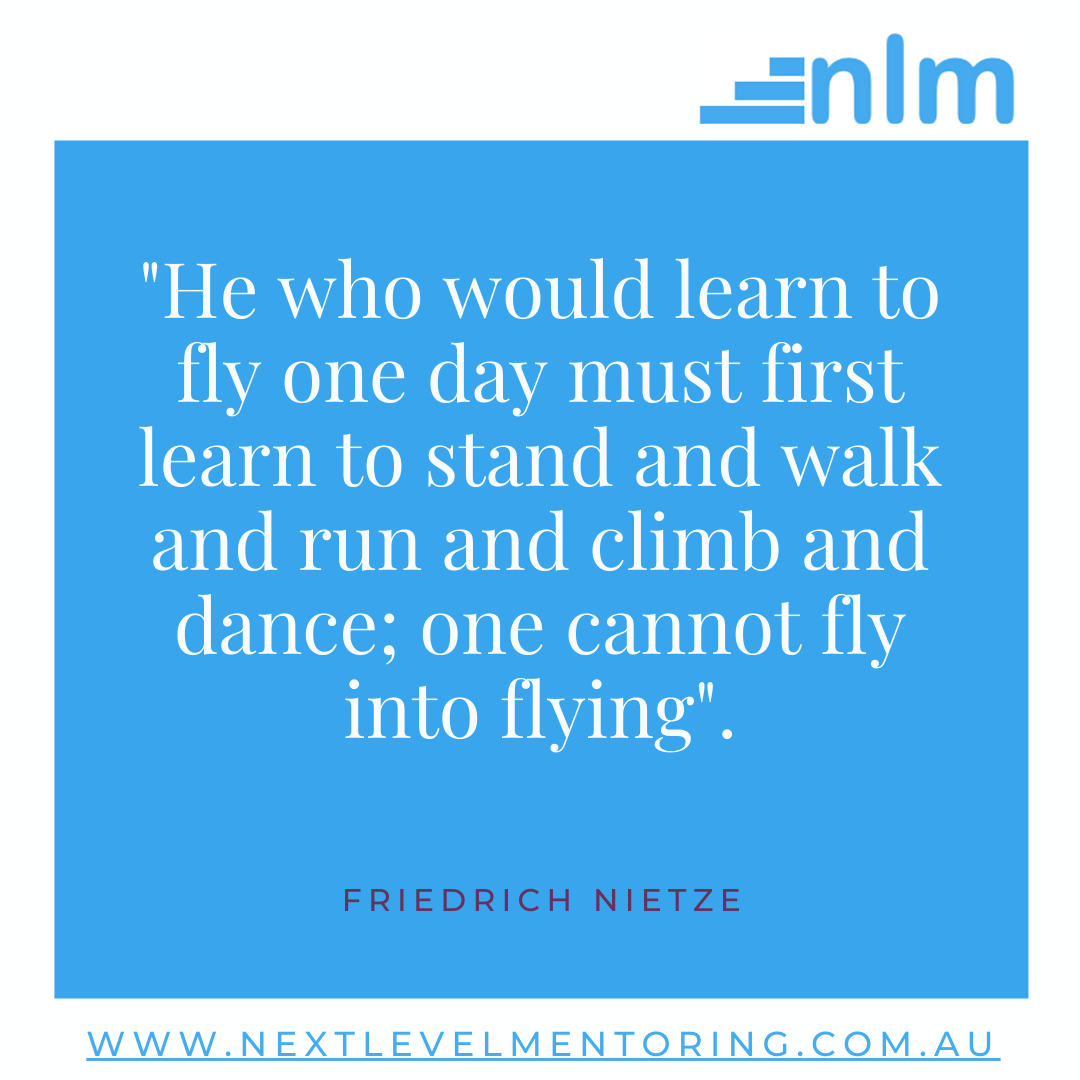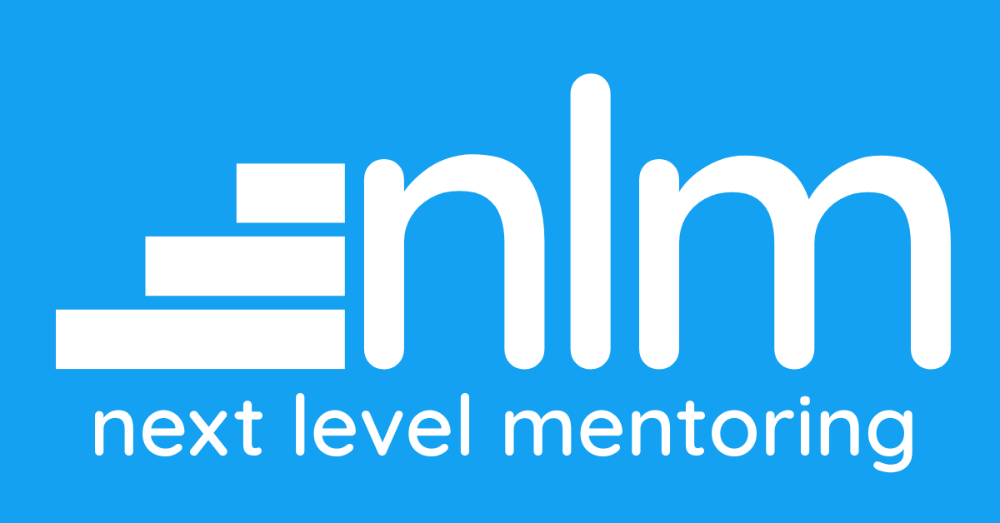How to build your first successful mentoring program
How do you run a successful mentoring program for your business?
You are interested in having a business mentoring program at your company, that's great news! Your people will thank you for it.
You have probably heard the advice that you must learn to walk before you can run. It is no different from building a mentoring program.
So if you are starting from scratch or you have had a mentoring program in the past but it didn't work, then we recommend you start with a pilot.
This video covers the various items you will need to consider in your pilot mentoring program including how to measure how successful it has been.
Transcript
Where to start with your mentoring program
So, you are thinking "Okay. I would like a mentoring program. Where do I start?".
If you've got nothing, you start with a pilot program.
If you're watching this video and you already have a mentoring program, you can still take a lot of learnings from this where you can start to freshen it up and think of new ideas for your program to make it from good to great.
What are the 6 items you need to consider for your pilot mentoring program?
1. Who shall be your mentors and mentees?
You want your mentoring pilot to be a success. So you want to choose a group of people that you know would want and enjoy having a mentoring program.
They may have expressed interest in wanting a mentoring program already or development opportunities.
You also want to target a group that is not going through other initiatives that you may be running because you don't want to have initiative fatigue.
2. How many people should be in the mentoring program?
You want to have enough people in your pilot to be able to get effective feedback.
Too little and you do not get enough consistency in the feedback.
Having 1 person's negative opinions in a group of only 10 can skew your decisions post the program.
But 1 person's opinion in a group of 50 is different.
If you have too many people that program becomes cumbersome.
So a suitable number would be between 10 to 30 mentoring pairs which is equal to 30 to 60 employees (1 mentoring pair is 2 persons).
Anything larger than that and your pilot starts to become unwieldy.
Anything less than 10 and you start to not get enough feedback and difference to be able to take the learnings to build the next program.
3. How long should your pilot mentoring program run?
For your pilot program, you'd be looking at six months at least.
Anything less than six months is too quick as you don't have enough time for the mentors to get to know each other.
And you put too much burden on the mentoring pairs because they have to hit the ground running and they also have their day jobs.
But you don't want your pilot to extend out too long.
So six months is the sweet spot for a pilot.
4. How will you attract willing mentors and mentees into your program?
You can run information sessions for participants because there'll be a lot of people who would like to try mentoring but are a little bit nervous.
These sessions will provide them with enough confidence and skills to give mentoring a go, either as a mentor or mentee.
You want to try and attract a strong mentor pool. Because when you have a good pool of mentors, you're going to attract good mentees, that's how it works.
5. What mentoring guidance should be provided?
You want to think about what guidance, learning and forms you will provide for the mentors and mentees.
You don't want to be overbearing with too much information, such as hundreds of website links and videos.
Because it becomes unwieldy and the mentors and mentees don't do any of it.
You want simple guidance.
You want simple webinars and workshops to provide initial training.
You want simple tools and templates that the participants will use during their mentoring.
Like our ABCD template.
6. How do you do the mentorship matching?
It would be best if you considered how the matching happens between your pairs.
Now, lots of companies decide that they will do the matching for the pairs themselves.
They'll spend their time going through the list of all the mentors and all the mentees and start trying to pair them. "I think this person works better with that person" etc.
That takes a lot of time and the mentee doesn't get as much ownership of the selection.
This lack of ownership is one common reason why programs fail. I recommend that you make it mentee-led.
What we do in Next Level Mentoring in our programs for clients is we give each mentee options for potential mentors.
For example, a mentoring program's Expression of Interest form will have a range of questions and key checkboxes that will include what a mentee is looking for in a mentor and the skills they would like to develop.
The same form, completed by the mentor, would ask what they can offer a mentee as well as having the same skills checkboxes that they could help a mentee develop.
From this, you can easily start to see who would match well together.
You can now give each mentee four options of mentors and they then say, "Well, this is my first preference, this would be second, this would be third etc.".
In most cases, they should get their first or second preference.
And it gives them ownership because they then say, "I wanted that mentor... and I got that mentor. That's brilliant!".
With this, you've already moved your program and people wanting the program to succeed, up one level.
So my recommendation is that it's mentee-led but there are many ways to do this.
Keep your mentoring program simple, sustainable, engaging and effective.
As a reminder, your pilot program has to be simple, sustainable, engaging, and effective.
Always scrutinise your program through these four lenses.
If it doesn't look good under one of the lenses (i.e. it's complicated, it's not engaging etc.) then fix it.
Because you want to make sure your program succeeds.
Treating your mentors and mentees like adults is one of the best ways to ensure your program is successful. Don't put lots of rules they need to follow or tell them what to do.
"You need to meet every Tuesday of the week".
"You need to fill in this 20-page mentoring handbook before every session".
It becomes too much and doesn't allow them to naturally find their way.
If you give them too much information then your program may stop after a few months.
But too little information and you can also make it the opposite, you can make a directionless.
You can't just put two people together and say "Away you go!".
You don't want that as well because they turn into nice coffee chats that soon fizzle out. You want to have a level of structure to your mentoring program.
Getting each mentee to think about what goals they want to achieve from mentoring, and getting the mentor to help them evolve their goals, is a great way to add structure.
At Next Level Mentoring, we have good tools and techniques for both defining goals and running your mentoring sessions.
How to measure the success of your mentoring program.
So how do you know if your program has been successful?
To know if it's been successful you need to be able to measure it.
We recommend these two main measures of success; Satisfaction and Effectiveness.
You measure Satisfaction by asking questions such as
-
Are you happy with your mentoring pair?
-
Are you getting value from it?
-
Are there areas of improvement? and
-
What are the highlights and lowlights?
You measure Effectiveness by asking questions around their goals such as:
-
How many goals has the mentee got?
-
How many goals are they working towards?
-
How many goals did they complete?
-
Did their goals change throughout the program?
One of the mentor's roles is to work with the mentee to be able to help them evolve their goals into something more meaningful.
To get the feedback you can issue out feedback forms to the mentors and mentees asking questions covering both Satisfaction and Effectiveness.
We also recommend mid-pilot pulse checks.
This is where you get all the mentees together to get deeper feedback from them. You will run a similar session with the mentors.
Great mentorship programs
You're trying to get as much feedback so that at the end of your pilot program you know what worked and what didn't.
You want to be able to say"Right, our program was good, but these are the areas we can work on to make it GREAT".
Then you repeat the process next year and go, "Our program was great, but these are the things that we need to work on to make it Outstanding!"
Once you've got an outstanding program it starts to become part of your company culture. Then you're onto a winner!


